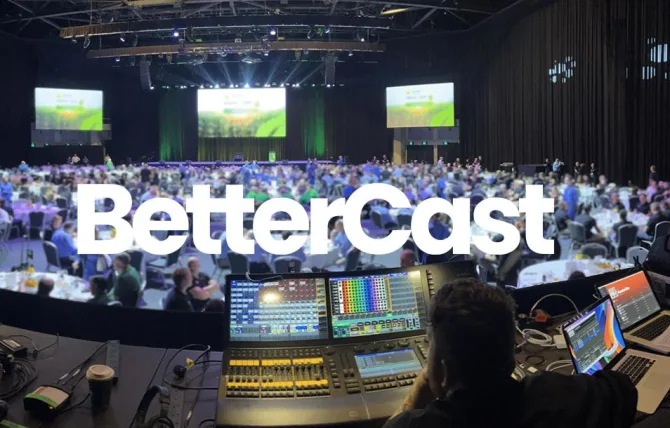BetterCast began as a passion project, born out of necessity, when COVID-19 brought travel and in-person events to a standstill.
My wife was running an event in Asia, and with travel restrictions in full force, she was determined to keep the event alive. This sparked my search for a platform that could facilitate high-quality broadcasting and live streaming while providing ample audience engagement.
As I looked into the available solutions, I found that the platforms capable of meeting our needs were prohibitively expensive and lacked the flexibility to handle the various events we had in mind.
Whether it was multiple stages over several days or features like exhibitor pages and lead generation tools, the options weren’t cutting it. Thus, BetterCast was born to deliver a more tailored solution for big and small events.
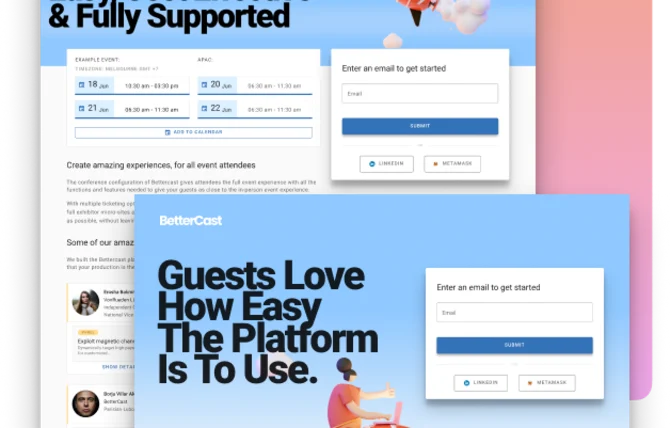
Development and Strategy
I approached the development of BetterCast with the help of a CTO I’d previously worked with, forming a small yet dedicated team.
We built the MVP using a no-code database solution to get things moving quickly. This allowed us to expedite the development process and streamline the platform’s delivery.
Initially, we used AWS IVS for video streaming, but as we started adding more advanced features like recording and editing, we realized that AWS IVS was too limited for our needs. So, we transitioned to MUX for all video integration and delivery.
Their multiple failover solutions were crucial for ensuring the reliability our customer base demanded.
For the backend, we first used Backendless, a no-code service. However, we soon found it lacked the flexibility and reliability to handle events. To remedy this, we rebuilt the backend using Django and Python, gaining full control over the customization and stability of our platform.
Features and Differentiators
Drawing on my experience with live streaming and video production, we focused on solving problems other platforms had overlooked, especially those impacting professional video production teams.
This became one of our key differentiators, as we ensured BetterCast could offer dual streaming, failovers, and enhanced technical support.
Our platform was also incredibly versatile, accommodating everything from single-page, one-hour presentations embedded on a client’s website to multi-day, multi-page events with tens of thousands of participants, complete with registration and marketing tools.
We aimed to offer high functionality with exceptional customer service at a fraction of the cost of our competitors. This approach allowed us to capture a significant market, particularly in the government sector, by offering a premium service within smaller budgets.
We also emphasized accessibility, which became a significant differentiator. The Accessibility Association of Australia recognized our platform, and we gained repeat business from disability associations due to our strong commitment to accessible events.
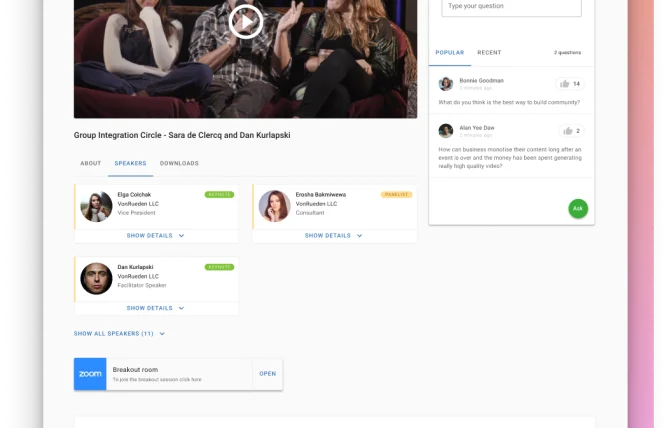
Implementation and Results
The feedback we received was overwhelmingly positive, given our status as a small, bootstrapped startup. Clients appreciated our ability to handle events of varying scales, from small, intimate sessions to significant productions, all while staying within budget.
Our commitment to accessibility and customer service was also highlighted for event teams, production staff, and attendees.
Challenges and Lessons Learned
Despite these successes, we faced significant challenges, particularly in marketing. At the start of the pandemic, the rush to adopt hybrid event solutions meant our customers often lacked technical knowledge and were locked into contracts with other providers.
Mid-pandemic, many competitors had secured long-term contracts, making it difficult for us to break into the market.
It was only as COVID measures began to ease that customers became more technically knowledgeable, leaving contracts that no longer met their needs or were too expensive.
This shift allowed them to appreciate the features and affordability BetterCast offered compared to the more prominent competitors. However, the end of COVID saw a sharp decline in the virtual events market, affecting everyone in the industry.
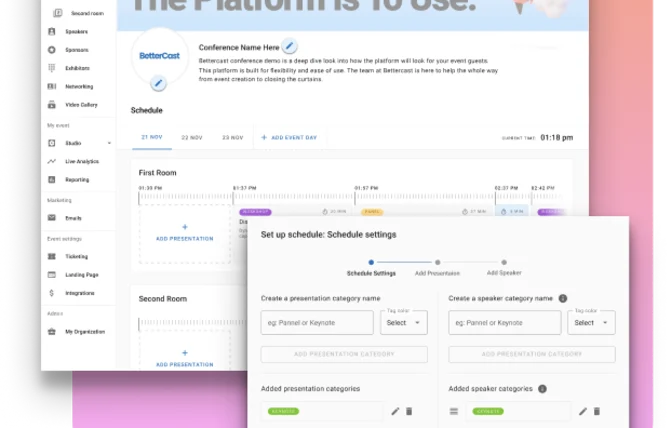
Exit and Current Status
Despite these challenges, BetterCast gained traction and substantially grew with limited resources. In late 2023, the platform was acquired by an event company, which has integrated BetterCast into its suite of services.
The acquiring company plans to continue developing the toolset, emphasizing accessibility and growing the platform to support its existing client base.
Market Approach and Challenges
Our early strategy focused on audiovisual teams and companies as they were often the first point of contact for event managers looking to stream events.
The philosophy was that while there are many event managers in any city, only a few companies have the expertise to deliver virtual live-streamed events. Our go-to-market strategy was to build partnerships with Australian event production teams, leveraging existing networks and focusing on word of mouth. This approach was effective, as we achieved early growth despite a limited marketing budget.
However, our focus on Australia and reliance on networks led to limited international reach. Without significant funding, we struggled to scale quickly at an international level.
We also targeted event managers dissatisfied with their existing platforms, encouraging them to switch to BetterCast after their contracts expired. This approach was somewhat successful, and many clients switched to us when their contracts ended.
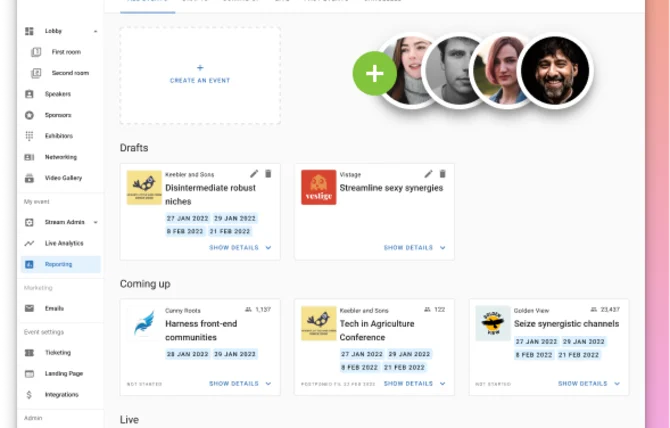
Market Shift Post-COVID
After COVID, the virtual events market saw a sharp decline. Disheartened by the limited success of online events, event managers pushed for a return to in-person gatherings. This shift significantly impacted the virtual events industry, leading to a downturn in the market.
Conclusion
BetterCast started as a personal project and grew into a comprehensive platform capable of handling various events, from intimate webinars to large-scale virtual conferences.
Despite the challenges of navigating a rapidly changing market and the post-COVID downturn in virtual events, BetterCast carved out a niche and earned a reputation for excellence. The acquisition by a larger event company marks the next chapter in its journey, ensuring the continued growth and evolution of the platform.
